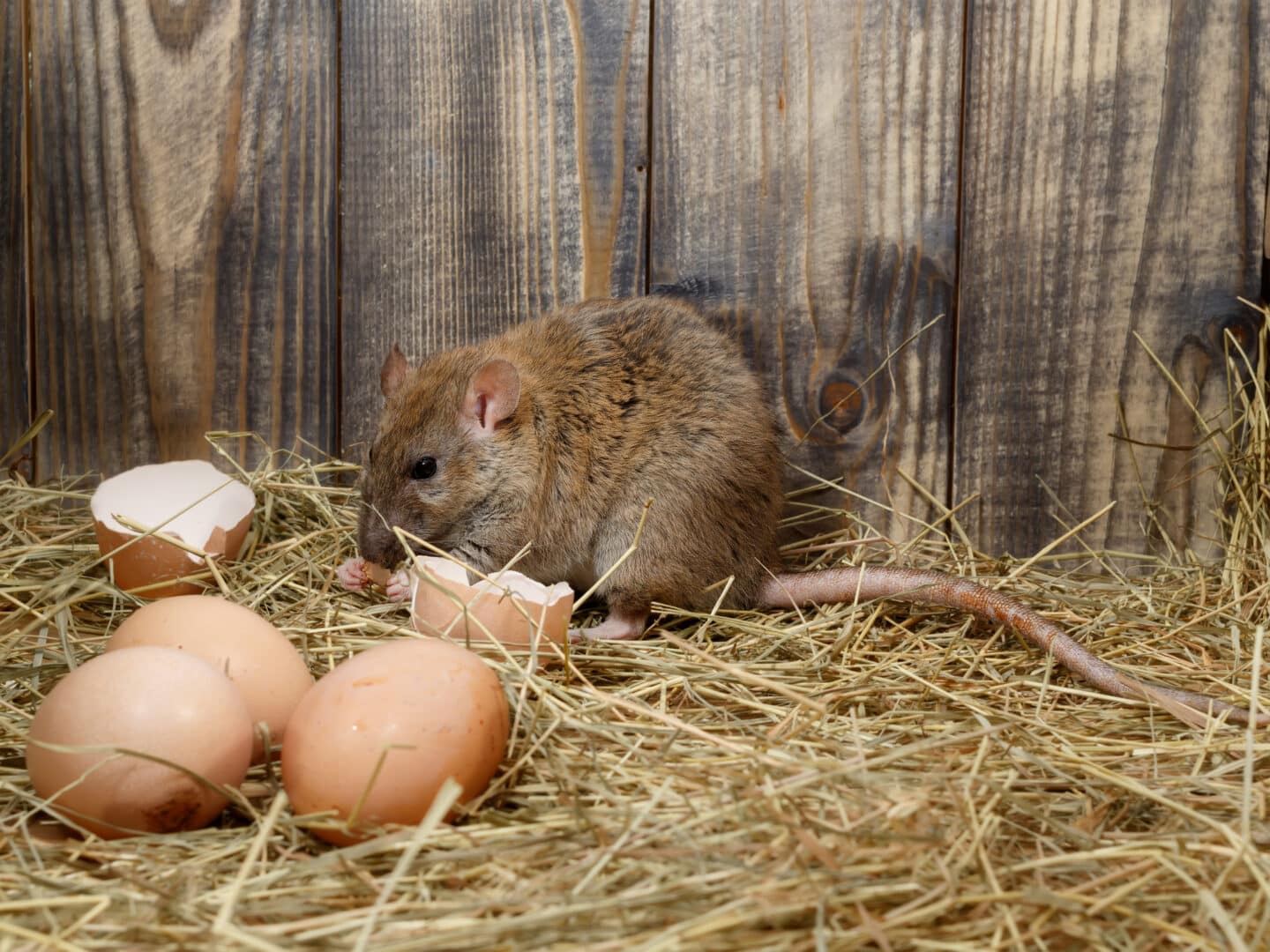Author: Kurt Treftz, Cascade Pest Control
Increasingly, city-dwellers in the Pacific Northwest are embracing the backyard chicken coop. And why not? Chickens can be maintained in a relatively small space and they provide fresh eggs, natural pest control, and improved soil quality. So if you have the space, it is a wonderful way to use it.
But there is a not-so-welcome urban dweller that likes to make an appearance around chicken coops: rats. While the rats aren’t necessarily lured in by the chickens, they are often attracted to the warm, cozy, well-fed opportunity that exists.
Problems with Rats Infesting Your Urban Chicken Coop
- Break and eat eggs and sometimes devour young chicks. They will also eat the poultry food or contaminate it with urine or feces.
- Spread diseases like Avian Flu, fowl cholera, and leptospirosis that can kill the chicken flock and even harm humans. In addition, they can transmit mites, lice, and viruses that can impact the health of the flock.
- Damage to the coop. Rats chew and gnaw constantly so they can destroy the structural integrity of the coop, compromising wires, rubber, plastic, and even temperature control units. They can be a costly “visitor”.
- Damage to the flock. They stress the flock and can create reduced laying capacity.

So, how do you keep rats from infesting your urban chicken coop?
Solutions to Keep Rats from Urban Chicken Coops
Well-designed chicken coop
The first place to start is a well-designed coop. If possible, raise the structure off the ground. This prevents rats from being able to tunnel under fencing and get inside. Make sure that you upgrade from chicken wire to something more durable as rats can easily chew through thin wire or even slip through it. (Rats can get through openings the size of a quarter).
Rat-proof feeders
Consider feeding chickens inside an enclosed run or use treadle feeders. Treadle feeders reduce the amount of discarded (and therefore tempting) food. They have a closed lid that the chicken lifts by stepping on the treadle to open and access the food. Controlling where and how the chicken is fed can reduce the access to food for rats and discourage them from hanging around. Feed on a schedule instead of open feeding, especially if you are concerned about an active rodent infestation.
Good food storage
Practice a good food storage strategy. Store chicken feed away from sheds and in rodent-proof, metal containers with tight-fitting lids. Try to keep food away from the chicken coop, even if it isn’t necessarily convenient.
Good coop location and maintenance
Build coops away from other structures, particularly your home (to reduce the chances of an opportunistic rat raiding your house). Clean the coop regularly – dispose of dead birds in vermin-proof containers, clear out spilled feed & broken eggs, and change bedding frequently. Around the coop, make sure that vegetation is cut back as rats love the cover that is provided and will use it to scurry close. As you maintain your coop, inspect for rodent presence. Do you see rat droppings? Evidence of material being moved? Greasy tail marks or pawprints? Take action if you believe you have rodents.
Other Reasons for a Rat Infestation
While it is true that chicken owners often have to deal with rodents, it isn’t like the coops magically made the rats appear. Most of the time, the rats are already around, the coop just provides the irresistible combination of shelter, food, and water. However, there are other attractants that you might want to tackle as well to keep your yard rat-free.
Hanging bird feeders
Believe it or not, these seemingly innocuous feeders can actually bring the rats to the yard. Birds are notoriously messy eats and all the feed on the ground is a smorgasbord for rats and mice.
Backyard compost
Every good deed does not go unpunished. . . (sigh). Backyard composting while great for the environment might not be as good for a rodent-free life. Rats are attracted to this decaying matter. Make sure it is sealed tight against rodent infestations, if possible.
Pet food (or other food left for outdoor animals)
If you have other outdoor pets or animals that you are feeding, beware that you might be attracting unwanted guests as well. Feed on a schedule and certainly take food in at night when rodents are more active.
The more you know, the better you are prepared to guard against rats and other rodents infesting your urban chicken coop. You can still get all the benefits of raising chickens in your backyard, but without a side of whiskered-intruder.
If you have seen these whiskered-intruders in your chicken coop and think you might have an infestation, call the rat control professionals at Cascade Pest Control 888-989-8979 or request a quote.
